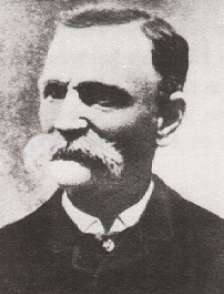Who wants my jellyfish?
I’m not sellyfish!
— Ogden Nash
Who wants my jellyfish?
I’m not sellyfish!
— Ogden Nash
The Busman’s Lord’s Prayer, allegedly recited by British bus drivers:
Our Farnham, who art in Hendon
Harrow be Thy name.
Thy Kingston come; thy Wimbledon,
In Erith as it is in Hendon.
Give us this day our daily Brent
And forgive us our Westminster
As we forgive those who Westminster against us.
And lead us not into Thames Ditton
But deliver us from Yeovil.
For Thine is the Kingston, the Purley and the Crawley,
For Esher and Esher.
Crouch End.
First published in 1671, this anonymous verse came with a simple instruction that would render it into sense. Can you discover it?
I saw a peacock with a fiery tail
I saw a blazing comet drop down hail
I saw a cloud with ivy circled round
I saw a sturdy oak creep on the ground
I saw a pismire swallow up a whale
I saw a raging sea brim full of ale
I saw a venice glass sixteen foot deep
I saw a well full of men’s tears that weep
I saw their eyes all in a flame of fire
I saw a house as big as the moon and higher
I saw the sun even in the midst of night
I saw the man that saw this wondrous sight.
I saw a pack of cards gnawing a bone
I saw a dog seated on Britain’s throne
I saw King George shut up within a box
I saw an orange driving a fat ox
I saw a butcher not a twelvemonth old
I saw a great-coat all of solid gold
I saw two buttons telling of their dreams
I saw my friends who wished I’d quite these themes.

This double-entendre was originally published in a Philadelphia newspaper a hundred years ago. It may be read three different ways: First, let the whole be read in the order in which it is written; second, read the lines downward on the left of each comma in every line; third, in the same manner on the right of each comma. In the first reading the Revolutionary cause is condemned, and by the others it is encouraged and lauded —
Hark! Hark! the trumpet sounds, the din of war’s alarms,
O’er seas and solid grounds, doth call us all to arms;
Who for King George doth stand, their honors soon shall shine;
Their ruin is at hand, who with the Congress join.
The acts of Parliament, in them I much delight,
I hate their cursed intent, who for the Congress fight;
The Tories of the day, they are my daily toast,
They soon will sneak away, who independence boast;
Who non-resistance hold, they have my hand and heart,
May they for slaves be sold, who act a Whiggish part;
On Mansfied, North and Bute, may daily blessings pour,
Confusion and dispute, on Congress evermore;
To North and British lord, may honors still be done,
I wish a block or cord, to General Washington.
— Frank H. Stauffer, The Queer, the Quaint and the Quizzical, 1882

The integral z-squared dz
From one to the cube root of three
Times the cosine
Of three pi over nine
Equals log of the cube root of e.

For an Old West outlaw, Black Bart had a rather poetic sensibility. Born Charles Bolles, Bart robbed stagecoaches of thousands of dollars throughout the 1870s and 1880s, but even his first victims noted his politeness — he avoided foul language and merely asked the driver to “please throw down the box.”
Eventually Bart was writing full-blown poetry to leave at the scene of each crime. He left behind this verse after one California robbery in 1877:
I’ve labored long and hard for bread,
For honor and for riches,
But on my corns too long you’ve tread
You fine-haired sons of bitches.
… and this one the following year:
Here I lay me down to sleep
To wait the coming morrow,
Perhaps success, perhaps defeat,
And everlasting sorrow.
Let come what will I’ll try it on,
My condition can’t be worse;
And if there’s money in that box
‘Tis munny in my purse.
When Bart was released from prison in 1888, a reporter asked if he were going to return to robbing stagecoaches. “No, gentlemen,” he said, “I’m through with crime.” Another asked whether he would write more poetry. He smiled, “Now, didn’t you hear me say that I am through with crime?”
In the State of Mass.
There lived a lass,
I love to go N. C.;
No other Miss.
Can e’er, I Wis.,
Be half so dear to Me.
R. I. is blue
And her cheeks the hue
Of shells where waters swash;
On her pink-white phiz.
There Nev. Ariz.
The least complexion Wash.
La.! could I win
The heart of Minn.,
I’d ask for nothing more,
But I only dream
Upon the theme,
And Conn. it o’er and Ore.
Why is it, pray,
I can’t Ala.
This love that makes me Ill.?
N. Y., O., Wy.
Kan. Nev. Ver. I
Propose to her my will?
I shun the task
‘Twould be to ask
This gentle maid to wed.
And so, to press
My suit, I guess
Alaska Pa. instead.
— Anonymous, cited in Carolyn Wells, A Whimsey Anthology, 1906
Henry Honychurch Gorringe (1841-1885) certainly deserved a hero’s remembrance. A naval officer and captain of the USS Gettysburg, he discovered an undersea mountain and moved Cleopatra’s needle from Egypt to New York.
Instead, he’s remembered for a verse by Arthur Guiterman:
In Sparkill buried lies that man of mark
Who brought the Obelisk to Central Park,
Redoubtable Commander H.H. Gorringe,
Whose name supplies the long-sought rhyme for “orange.”
An old couple living in Gloucester
Had a beautiful girl, but they loucester;
She fell from a yacht,
And never the spacht
Could be found where the cold waves had toucester.
An old lady living in Worcester
Had a gift of a handsome young rorcester;
But the way that it crough,
As ‘twould never get through,
Was more than the lady was uorcester.
At the bar in the old inn at Leicester
Was a beautiful bar-maid named Heicester;
She gave to each guest
Only what was the buest,
And they all, with one accord, bleicester.
— Anonymous, cited in Carolyn Wells, A Whimsey Anthology, 1906
An Arab came to the river side,
With a donkey bearing an obelisk;
But he would not try to ford the tide,
For he had too good an *.
— Boston Globe, cited in Carolyn Wells, A Whimsey Anthology, 1906